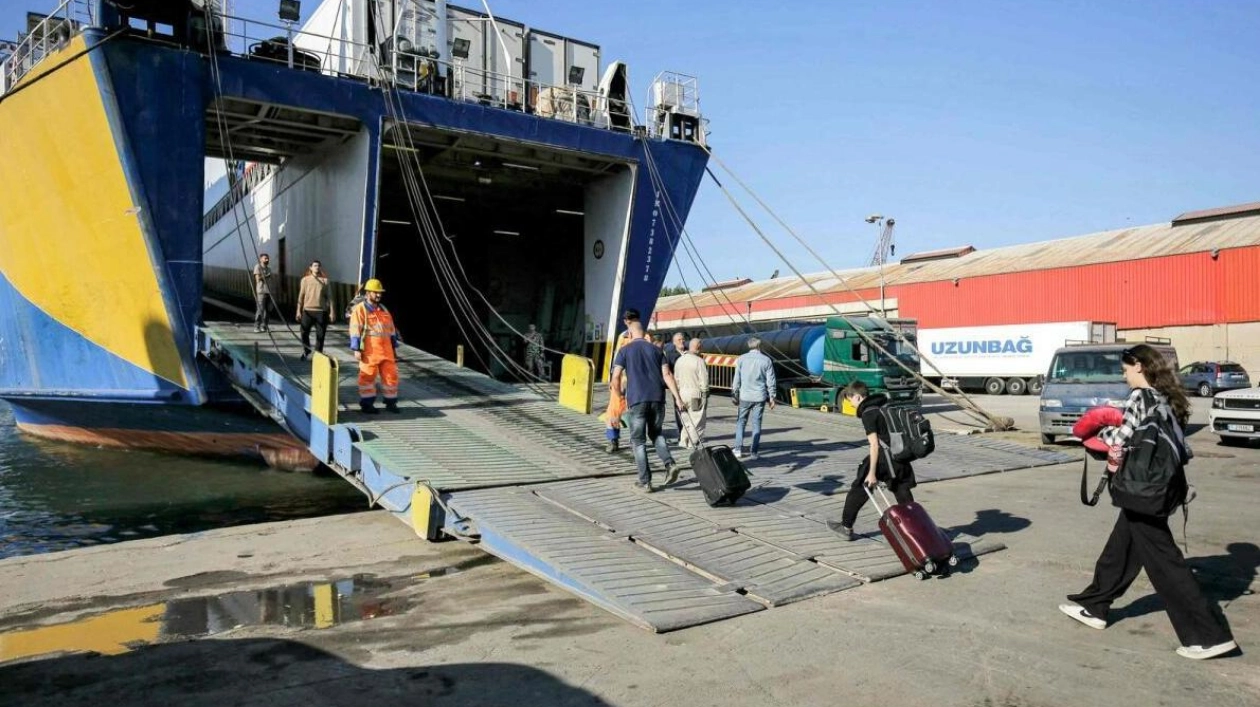On October 19, 2024, individuals evacuating from Lebanon boarded a ship destined for Turkey at the port of Tripoli, a northern city. — AFP
Hassan Alik, escaping the escalating violence of the Israel-Hezbollah conflict, departed Lebanon on Saturday via a ship to bypass Beirut's airport, which he feared might be bombed at any moment. The 31-year-old made his way to the northern port of Tripoli, situated along Lebanon's Mediterranean coast, which has thus far escaped Israeli bombardment amidst a month of intense fighting across the country. Although Lebanon's sole international airport has not been targeted, Israel's military issued a warning last month that it could strike the airport to halt weapon transfers to Iran-backed Hezbollah militants. Consequently, many Lebanese opting for safety abroad have chosen the 13-hour sea voyage to Turkey aboard cargo ships converted for passengers, rather than flying from Beirut's airport, which was hit during Israel's major conflict with Hezbollah in 2006.
"I'm traveling from here because I'm afraid to go through the airport," Alik stated at the Tripoli port. "If I buy a plane ticket, the airport could be bombed," said the man from the densely populated southern Beirut suburbs, a Hezbollah stronghold that has endured heavy bombardment in recent weeks. On September 23, Israel initiated an intense air campaign against Lebanon, followed by ground forces after nearly a year of cross-border exchanges with the Iran-backed Hezbollah group over the Gaza war. Since then, the conflict has resulted in at least 1,454 deaths in Lebanon, according to an AFP tally based on Lebanese health ministry figures, though the actual toll is likely higher. With the exception of national carrier Middle East Airlines, most companies have ceased operations at Beirut's airport due to the violence.
The large ships at the Tripoli port, which previously transported cargo to Turkey's southern shores five times a week, began carrying passengers about a year ago, selling tickets for approximately $350, according to captain Salem Jleilati. However, demand has surged since September, rising from about 150 passengers per week to at least 900. Muammar Malas, 52, from northern Lebanon, stated he "chose to travel by boat because it's difficult to reach the" airport in Beirut, which is "very close to the southern suburbs", a Hezbollah stronghold. The cargo vessels are not designed for passenger transport, "but we are forced to use them," said Malas. Over one million people have fled the violence across Lebanon, according to officials. Mohammad Hawar, 22, has been displaced twice, first from the southern city of Nabatiye, where intense Israeli strikes this week resulted in several dozen deaths, and then from south Beirut.
"The best thing to do now is flee Lebanon," he told AFP as he boarded the boat. Passenger Israa Sweidan, a Palestinian woman from the nearby Beddawi refugee camp, which has also been targeted by strikes, stated that the sea journey out of Tripoli was "currently the safest option in Lebanon."
Source link: https://www.khaleejtimes.com






